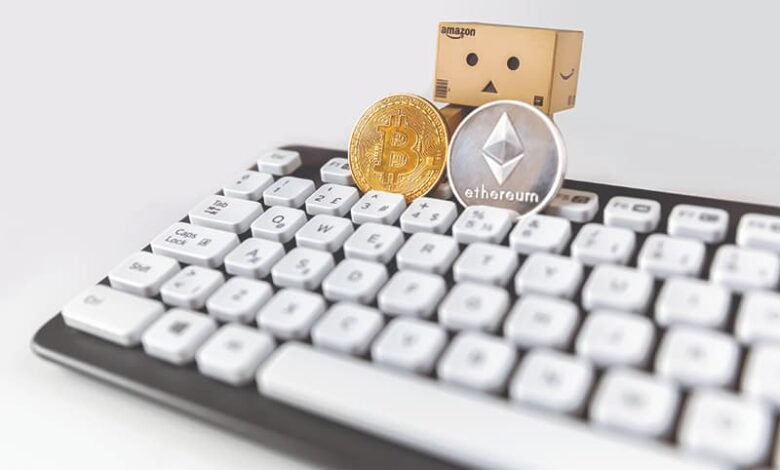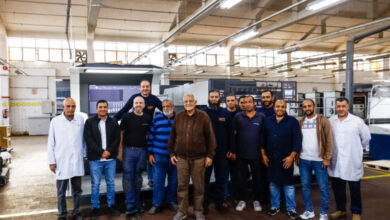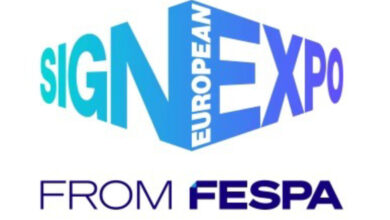Blockchain Shapes the Future of Packaging and Supply Chain

As businesses the world over are looking at boosting efficiency, security, transparency, and cutting down on paperwork, decentralization is gaining a central seat. With the Fourth Industrial Revolution, a plethora of highly advanced technology and related solutions are becoming part of this need for decentralization.
Blockchain in simple terms is a database of records called ‘blocks’. These records are interlinked or ‘chained’, using a hidden code. Each block contains a cryptographic link to the previous block, and information on the previous transaction, those involved in it, etc. The process is spread across multiple computers with no single entity having ownership of the information on the ‘ledger’ or record. In such a decentralized network, transactions such as transfer of cryptocurrency like Bitcoin or Ethereum, are virtually not hackable, ensuring a non-corruptible database.
Application of blockchain can be public or private. While cryptocurrency is an example of public application, IBM’s Hyperledger Fabric is a private ledger platform.
Transfer of cryptocurrency like Bitcoin or Ethereum are decentralized, as such transactions are not reliant on any central authority, such as a government or bank, to maintain or uphold them. In this case the ledger is spread out over many computers which have its own advantages. Such transactions are virtually not hackable, as in such a decentralized network, transaction records are stored in several computers that no single entity owns.
Blockchain’s Role in Food Packaging and Labeling
Many in the food packaging industry are exploring new blockchain solutions to maintain food integrity. The entire supply chain process – right from agriculturists to food processors to warehouses, and finally into the hands of the distributors – gets streamlined by a decentralized ledger, making it possible for easy communication between the links, without conflicting systems or multitude logs. Checkpoints are rendered paperless and any product information can be accessed on the spot by merely scanning the product barcode or QR code. Another advantage is that records cannot be altered as all information on the ledger is by default authenticated. These include data on products, shipments, deliveries, financial closings, and more. In supply chain applications it can be used to communicate electronic data interchange (EDI) codes, with EDI standards set by GS1 India, a New Delhi-based global standards organization, now supporting blockchain.
Blockchain also helps to track and trace products along the value chain, making the process more transparent with shared information on the origin and handling of products. Traceability is a keen aspect, especially for the pharma and food industries in cases of contamination of product batches. Through a new partnership, American technology companies Honeywell and iTrace Technologies are integrating blockchain technology into industrial printers to track inventory across the supply chain.
Many smaller package printing companies are shifting gears realizing that product packaging will soon be taking a giant evolutionary leap.
Blockchain is a viable tool to make labeling data more robust, information transparency more accessible, and thereby, empower consumers about their purchasing decisions. Packaged cartons can now be used to access every detailed bit of information about the product’s journey. With the help of blockchain technology, scanned codes can offer your package a powerful insight into your product. Company claims such as “Truly Organic” or “Lose Fat 100% Naturally” can be put to the test, while a “Made in Japan” product will need to mean just that – Made in Japan. As consumers can now easily authenticate the validity of brand promises, blockchain technology offers an incredibly useful tool of transparency for building brand trust. With blockchain driven supply chains, packaging becomes a new type of brand ambassador independent of corporate claims. Authentication of brands can be made directly by the consumers, safeguarding them from tampered or counterfeit products. Blockchain technology can be a solid system adding value for the supply chain through transparency and the ever-growing threat of counterfeits.
Global leaders in the food and retail industries like Amazon, Dole, Nestle, Shopify, and Walmart have already hit the headlines taking steps in this direction and it will not be long before the middle-level and smaller players follow suit. With the financial incentives attached to the technology, it is just a matter of time before blockchain becomes the industry standard.
Application in India
“A major application of blockchain has been happening in the sports sector in India, especially in the post pandemic period, helping in achieving two important purposes. It has kept fans engaged, taking entertainment to the next level, and has also brought transparency in the financial model and unit economics,” explains Sujit Bangar, a product of Boston’s Harvard Business School and Founder of TaxBuddy.com, a leading tax filing online platform in India.
Education is another major area of application where blockchain has the capacity to transform the educational system in India’s rural hinterlands by making it accessible to students as well as recruiters etc., by bringing transparency in processes and assessment.
“Similarly, wide acceptance of blockchain technology is being seen in governance in India. The state of Andhra Pradesh has implemented blockchain for land record keeping. Many state governments in India are planning to issue government certificates and keep them in a safe vault giving restricted access to citizens using private keys,” the former Indian Revenue Service (IRS) official and former Joint Commissioner of the Income Tax Department, points out.
In commercial sectors, the diamond and precious stone industry is using this technology to keep track of legal and original diamonds.
Non-fungible tokens (NFTs) are finding wide acceptance, lately, in gaming, entertainment, finance, and investments. India today has highest number of crypto investors in the world! As per reports there are more than a hundred million people in the country who have invested in crypto!
“The Indian Government is promoting innovation in blockchain technology and a recent spike in VC investments in blockchain-based tech startups added to the momentum. And as far as taxation of certain applications of blockchain like cryptocurrency, NFTs, etc. are concerned, there is need of more clarity from government,” adds Bangar.
Thriving in the Middle East
The need for a fully-secured, tamper-proof supply chain has become mandatory in the current COVID-19 pandemic scenario. Vaccines have become a precious commodity and their very sensitive nature has made countries cache in on the advantages of blockchain technology that guarantees a foolproof solution.
With Abu Dhabi as its hub, Hope Consortium, a public-private partnership (PPP) is utilizing mUnity – a proprietary custom-built digital system – that uses blockchain technology to track and trace COVID-19 vaccine sourcing, storage, shipment, and all related data instantaneously at every step of the vaccine’s journey. Starting from the manufacturing facility until the time of the administration of the dose, the system – developed by Maqta Gateway, Abu Dhabi Port’s wholly owned digital technologies subsidiary – has the capability to track individual vaccine doses based on the data available.
In another development DP World, the Emirati multinational logistics company based in Dubai, has peartnered with TradeLens, a blockchain-based interconnected ecosystem of supply chain partners, to accelerate the digitization of global supply chains. DP world aims to connect all its marine and inland container terminals, feeder companies, and logistics divisions with the TradeLens platform, jointly developed by IBM and GTD Solution Inc., a division of A.P. Moller Maersk. The integration is to improve operational efficiency providing visibility across the entire supply chain.
In Saudi Arabia, the Saudi Customs in collaboration with TradeLens is aiming to transform the shipping industry to become faster, more transparent, and efficient in its real-time operations. “To establish the Kingdom as the world’s premier logistics hub we needed to create a paradigm shift in our shipping processes and explore futuristic approaches with our peer-to-peer business ecosystem worldwide,” Ahmed Al-Hakbani, Governor of Saudi Customs said.
An Upgrade of Trust
Three intrinsic attributes of blockchain make it most desirable, helping the technology gain wider acceptance in today’s scenario. Firstly, it’s immutable. Secondly, it’s most secured. And thirdly, it’s decentralized.





One Comment